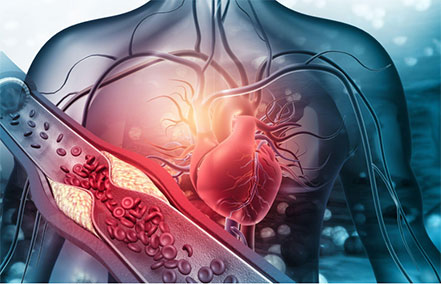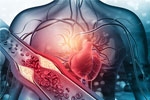
According to the American Heart Association, venous thromboembolism (VTE) affects 300,000 to 600,000 Americans annually1. Symptoms of a blood clot include pain or cramping, swelling, tenderness, warmth to the touch, and bluish- or red-colored skin. Blood clots in the heart include chest and left arm pain, sweating, and difficulty breathing. The most common symptoms of blood clots in the lungs include shortness of breath or difficulty breathing, chest pain, and cough.
A Computed Tomography (CT) Scan can be utilized to discover and diagnose a wide variety of medical conditions and abnormalities of nearly any body organ, including dangerous blood clots. Blood clots in our blood vessels can increase blood pressure and break open the vein walls to travel to other body parts, restricting blood flow to the rest of the body. Doctors generally refer to these clots as venous thromboembolism (VTE).
Two Common Types of Venous Thromboembolism are:
Deep vein thrombosis (DVT): A clot deep in a vein inside the leg, the arm, or someplace else in the body on occasion. Symptoms include swollen veins that are hard or sore when you touch them, swelling, and warm, painful skin.
Pulmonary emboli (PE): A lung clot that breaks free and partially or entirely blocks the blood flow to that lung. Symptoms include trouble breathing, chest pain, coughing blood, and shortness of breath.
A CT scan is doctors' most common diagnostic test to detect and diagnose a blot clot. CT scans expose you to a great deal of radiation, so laboratory testing can help minimize the overuse of CT scans. If you are over 50, use birth control that contains hormones, or haverecently had surgery or suffered an injury, your risk for blood clots increases. You should also consult your physician and follow their recommendations to reduce the risk of blood clots.
At Houston MRI a CT scan examinations are performed by certified technologists, and every examination is directly supervised and interpreted by board-certified radiologists. Speak with your doctor to determine if a CT scan is a good recommendation for you. Askquestions and discuss any concerns with your doctor prior to your scan.
Our mission at Houston MRI ® & Diagnostic Imaging is to provide the patients and physicians with affordable medical diagnostic imaging in a warm and patient-friendly environment. It is our goal to make the medical imaging procedure as pleasant as possible. Our promise to our communities is "hospital quality imaging without the hospital costs" with efficient service to both our patients and physicians.



